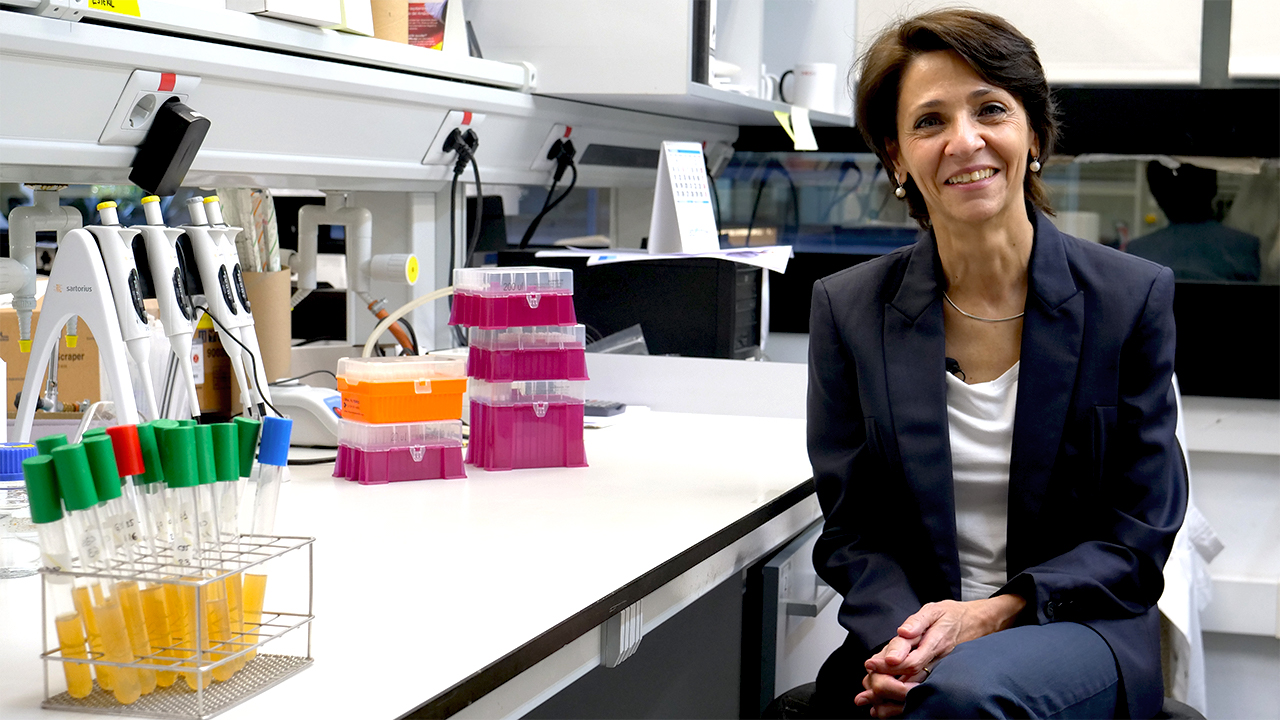A team of scientists from the Institute of Agrochemistry and Food Technology (IATA-CSIC), in collaboration with the Arnau de Vilanova Hospital in Valencia, is investigating the immunological mechanisms by which the intestinal microbiome can protect or aggravate the COVID-19 infection
The intestinal microbiota - the group of microorganisms that live in the human intestine - is an important regulator of the immune response to infections by viruses and bacteria. For this reason, a research team from the Institute of Agrochemistry and Food Technology (IATA), a center belonging to the Spanish National Research Council (CSIC) and located in the University of Valencia Science Park (PCUV), studies the relationship between intestinal microorganisms and the infection rate of SARS-CoV-2 virus, as well as the influence of intestinal microbiota on COVID-19 symptoms.
Yolanda Sanz, researcher of CSIC in IATA and responsible for the project, assures that, according to previous studies, "commensal bacteria are able to activate the protective immunological response against viral infections, for example, stimulating the synthesis of interferons type I, which are in charge of destroying the viruses that can invade our cells". For this reason, the group led by Sanz is trying to determine whether the intestinal microbiota can make an individual more susceptible to SARS-CoV-2 infection or, on the contrary, protect him/her through its action on the immune system.
During the investigation, it is also analyzed if the intestinal microorganisms aggravate the symptoms of the disease and its complications through the so-called "cytokine storm", a process that occurs due to an excessive immune reaction and that causes a systematic inflammation that can even lead to the death of the individual.
Protection or susceptibility
In order to carry out the project "Influence of the intestinal microbiome on the COVID-19 infection and on the effectiveness of immunotherapy in cancer patients and BICOIN controls", financed by the CSIC's Global Health Platform and carried out in collaboration with the Arnau de Vilanova Hospital in Valencia, Yolanda Sanz's group is taking stool samples from three groups of people - who have already suffered the infection, individuals at risk who could suffer it in the future and healthy subjects - in order to later be able to compare the results obtained.
The comparative study will serve to identify the components of the microbiota and the immunological mechanisms by which they can confer protection or susceptibility to COVID-19 infection and influence the individual's immune response. The IATA-CSIC researcher explains that "by including in the study oncological patients submitted to immune-based therapies, a type of therapy against cancer that inhibits the immune control point, it will be possible to prove the effectiveness of this type of therapies in the protection against COVID-19".
According to Sanz, the results of the research will help to differentiate between individuals of higher and lower risk. "This would help us make decisions about which protective measures to apply. In addition, the quality of the intestinal microbiota of the individuals at greatest risk could be improved in order to promote the proper functioning of their immune system against this type of infection. This research could identify the commensal bacteria and/or specific molecules that they produce and, in the future, they could be administered, for example, as supplements or drugs that boost our defenses against this type of infection.
The research team expects to have the first results of the study in early 2021. These will advance knowledge about SARS-CoV2 infection in higher risk patients such as cancer patients, as well as in the general population, helping to mitigate and overcome the effects of the pandemic.
More information:


